Description
Finally the Musasa project started separating out Ruli coffee, in the past Ruli coffee has always been a notch above the rest in my book – some of my favorite lots of Rwanda have been from Ruli.
Dukunde Kawa is a well-known producer group in Rwanda, as much for exceptionally bright and memorable coffees as for its exceptional business structure: the cooperative carries multiple certifications for its various washing stations including Fair Trade, Organic, Rainforest Alliance, and UTZ, and more than 80% of its workforce is women. Not only that but the organization is located in the Northern province, which, despite its closeness to Kigali, tends to be little-known in specialty coffee compared to the west and south. Since first organizing in 2000 with a single wet mill, years before the majority of washing stations in Rwanda even existed, Dukunde Kawa has received sustainability awards from the SCA as well as placing in the top positions in Rwanda’s Cup of Excellence competition. Today the cooperative has over 2,000 farmer members and 4 washing stations in the Gakenke District north of Kigali. Ruli is one of these stations.
Tasting Notes:
Stand up beans good from light to dark, but we thought best at the fuller roast levels. Medium to full bodied, lower acidity, clean and chocolaty with some nice fruity overtones. Lighter roasts will have a little citric/floral tone with a sweet and herbal edge, a hint of soft fruit. Medium roasts get much more chocolaty and less herbal providing a balanced cup, works nicely for all taste buds; smooth and rich. Darker roasts brew a strong and bold cup, very chocolaty with a hint of spice in the aftertaste, roasty accents.
Roasting Notes:
Good at almost any roast, would start where you personally tend to enjoy coffees, a medium roast is great if unknown. Easy to roast, even roasting with medium to low chaff.
Ruli was established by Dukunde Kawa in 2004 and originally served 300 local coffee farmers. Today there are over 800 contributing farmers and Ruli is Dukunde Kawa’s largest station. This is one of the highest elevations that Dukunde Kawa serves, with farms passing 2100 meters. Ruli itself sits at 2100 meters, making it one of the highest washing stations in the country. Because of the high elevation and local climate, harvest here progresses slowly and members annually pick coffee into the month of October, multiple months past the majority of the country.
Processing at Ruli includes cherry sorting by the farmers themselves upon delivery. The cherry is then floated in a large receiving bay to identify and remove floaters (low-density cherry which is processed separately). Cherry is then depulped and the fresh parchment is graded immediately by flotation in a short channel. Fermentation usually lasts 18 hours and is completed without water. Once the dry fermentation is complete the parchment is soaked in fresh water between 18-24 hours to halt fermentation and the stabilize moisture content of the batch. After the soak the parchment is washed once again, this time in grading channels—long shallow concrete channels with water flowing through—which allows the parchment to naturally separate by density. From here, each separate density grade is moved to pre-drying tables to be hand-sorted for imperfections and gently dried to the touch. After the hand-sort is complete, the parchment is then moved to fully-exposed drying tables to finish drying, a process that takes between 14-21 days depending on the climate.
Despite its diminutive size compared to other East Africa coffee producing countries, Rwanda’s coffee has an important history and terroir entirely unique to the rest of the continent. Coffee was originally forced upon remote communities by the Belgians as a colony-funding cash crop. The Belgians distributed varieties cultivated by the French on Ile de Bourbon (now Reunion Island, near Madagascar) but had so little invested in coffee’s success that they immediately allowed production to decline through lack of investment in national infrastructure, as well as the farmers who grew it. As a result, the sector suffered near total obscurity in the coffee world from Rwanda’s independence in 1962 until the period of rebuilding following the country’s devastating civil war and astonishingly tragic genocide in 1994.
Rwanda’s former cash crop, however, roared to international buyer attention in the late 2000’s thanks to one of East Africa’s most successful coffee interventions, the Partnership for Enhancing Agriculture in Rwanda Through Linkages (PEARL). PEARL was a sweeping infrastructure and education investment targeting large regions of Rwanda whose coffee was for the most part processed poorly at home and exported with little traceability. The program, designed and led by the University of Michigan, Texas A&M and a host of Rwandan organizations, vastly increased processing hygiene by building washing stations. It also organized remote and under-resourced smallholders into cooperative businesses capable of specialty partnerships. Perhaps most significantly for the long term, it took the legacy bourbon genetics buried in abandon and polished them anew to the amazement of coffee drinkers everywhere. The snappy acidity, stone fruit flavors, and fragrant herbaceousness found in Rwanda’s coffee is still completely unique to bourbon produced anywhere else in the entire world. Producer groups like Dukunde Kawa cherish their farmers’ potential and are learning to maximize the quality and variety available from Rwanda’s most promising terroirs.
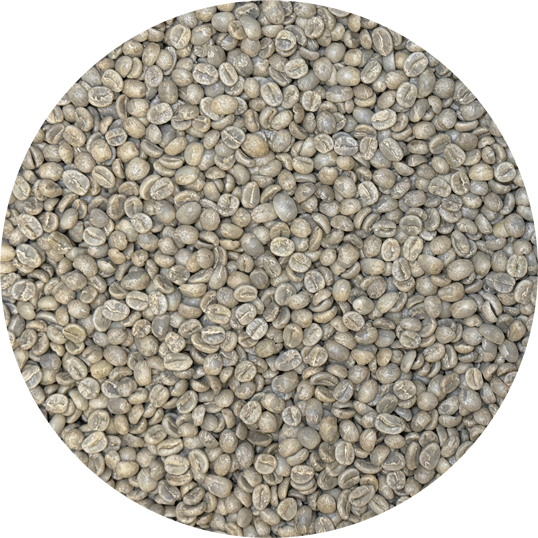
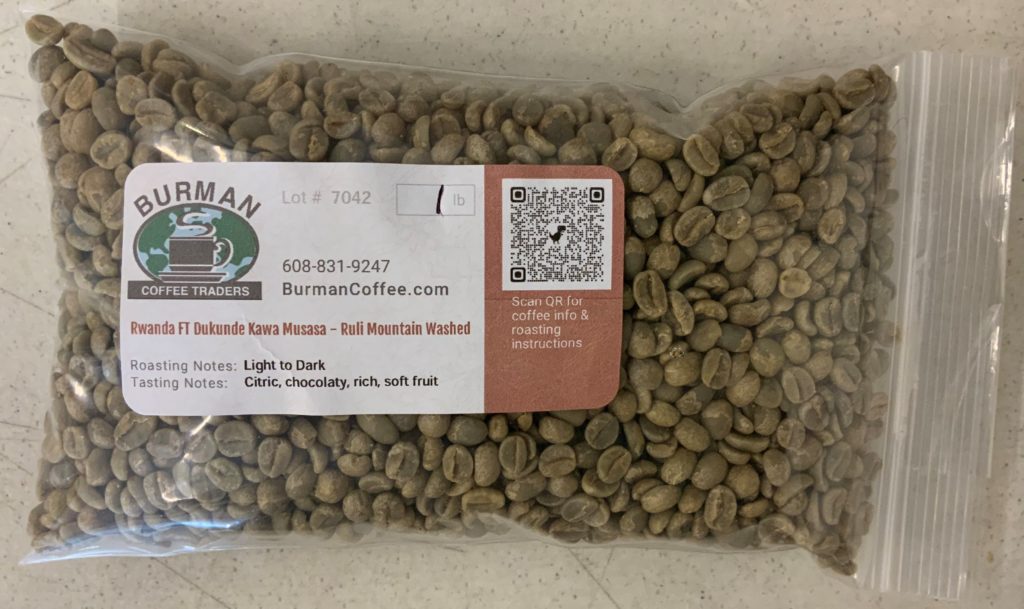
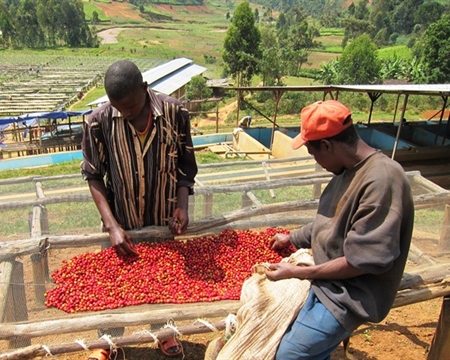
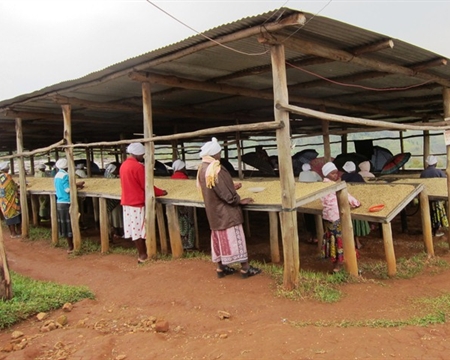
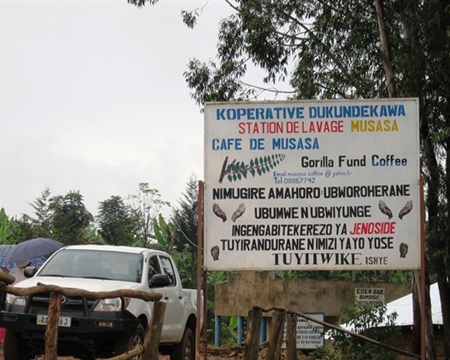
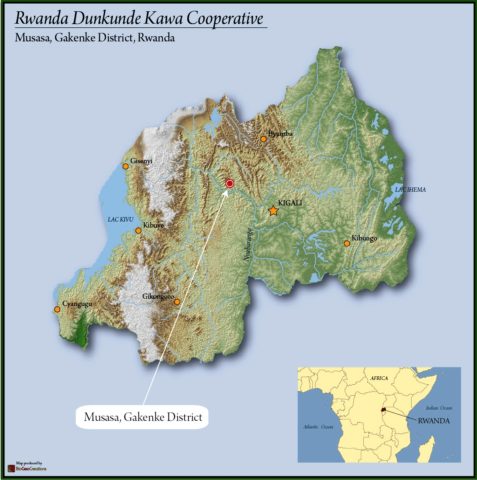
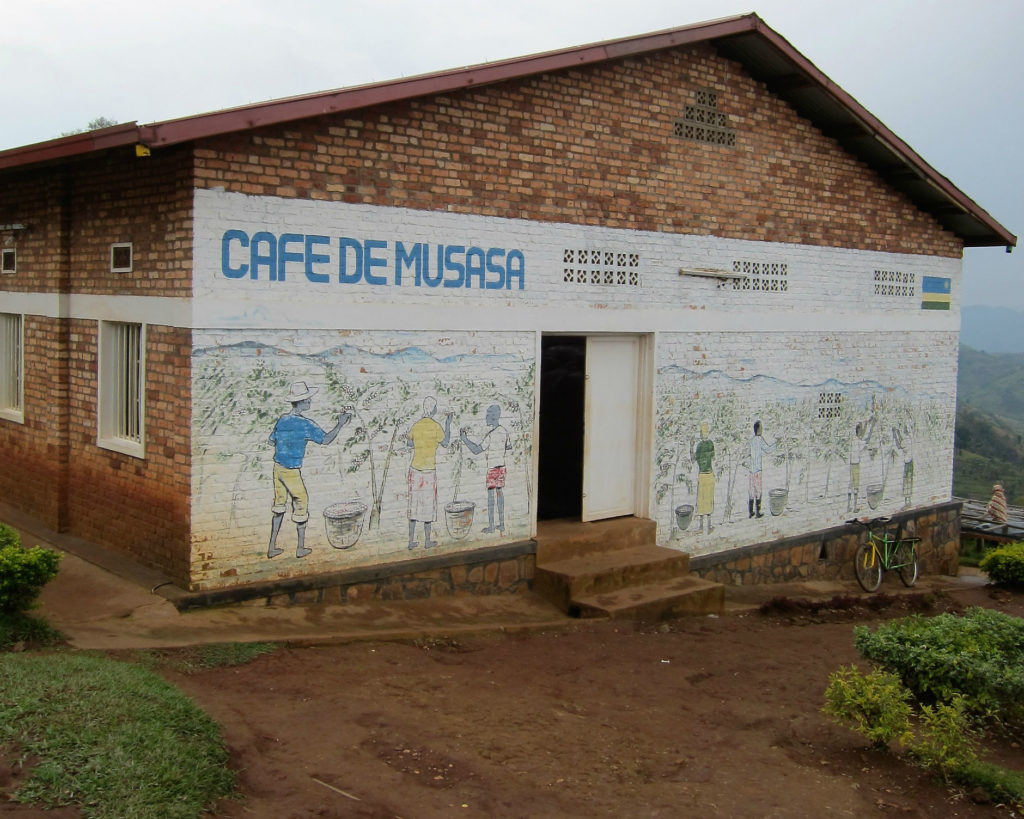
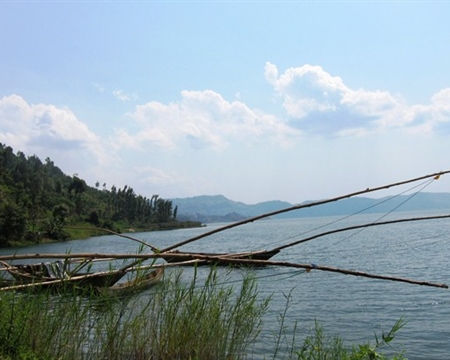
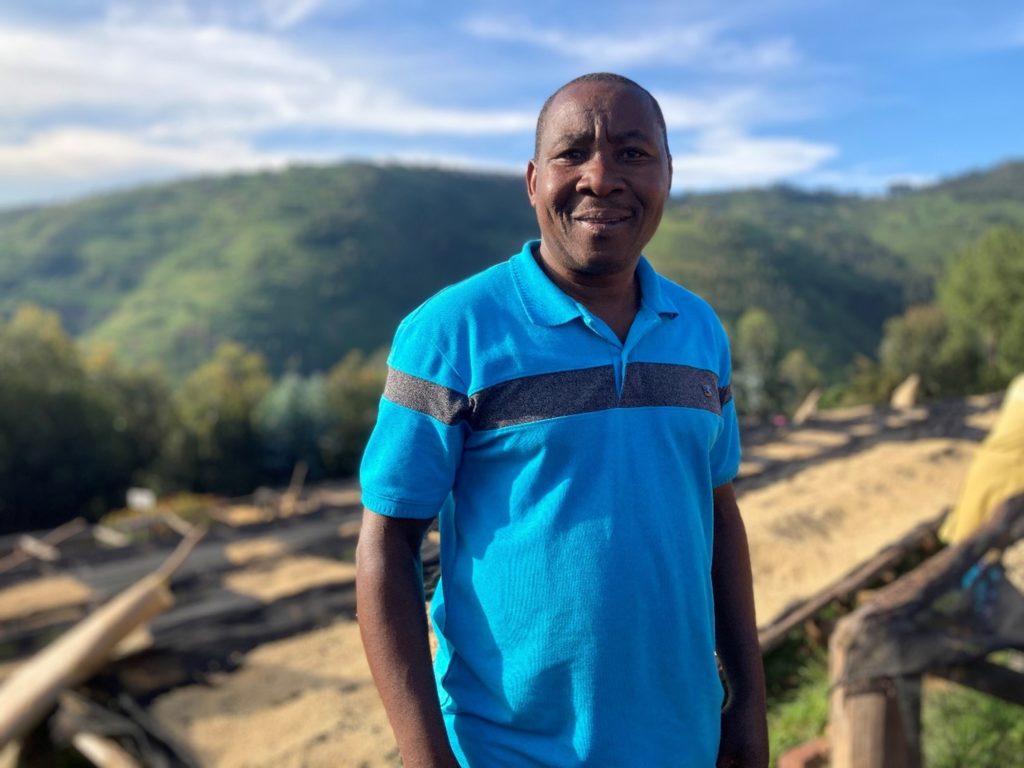
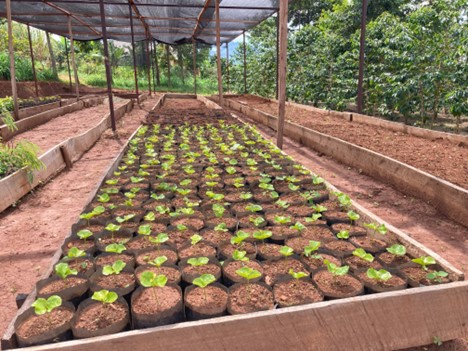
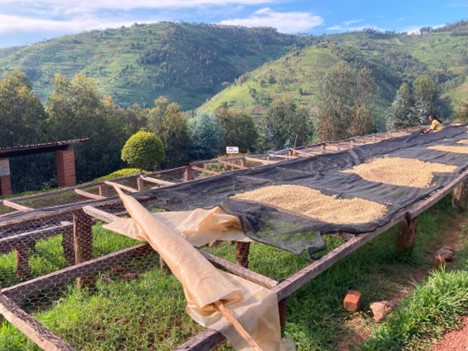
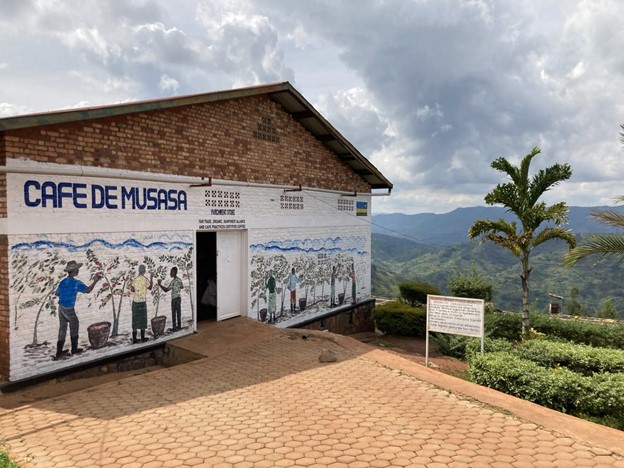
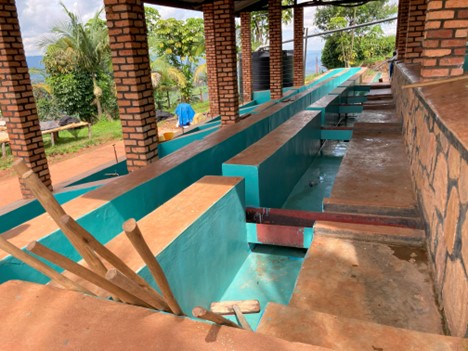
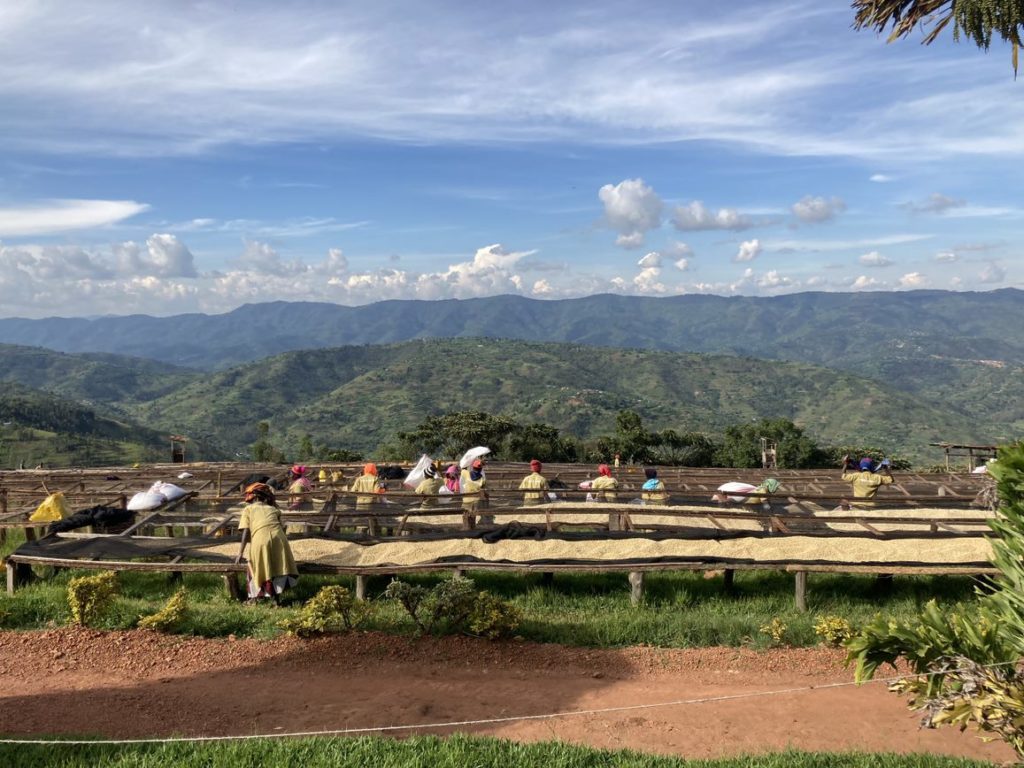
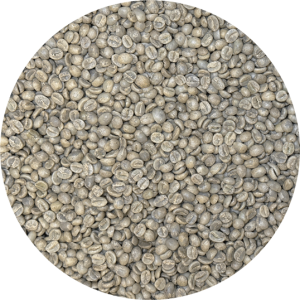
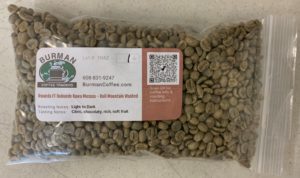
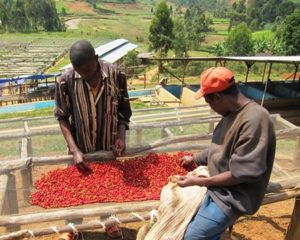
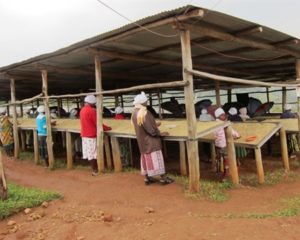
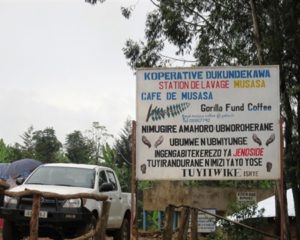
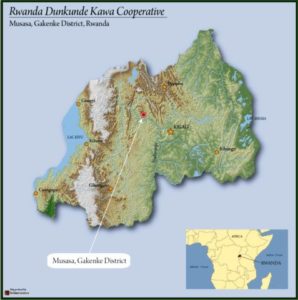
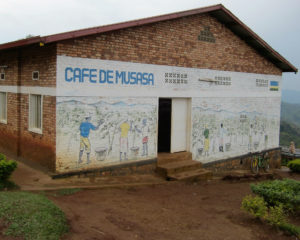
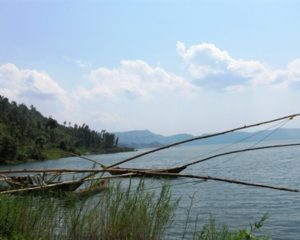
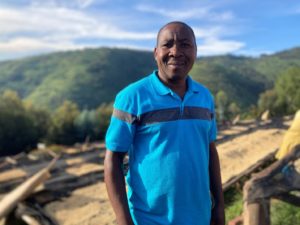
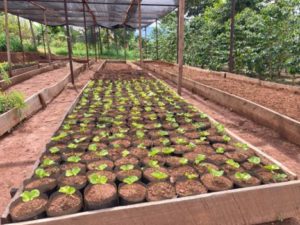
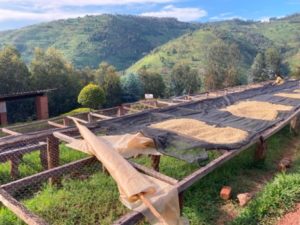
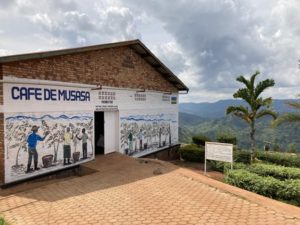
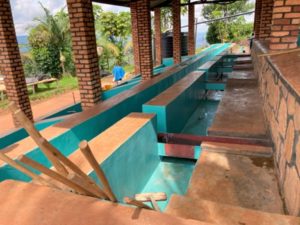
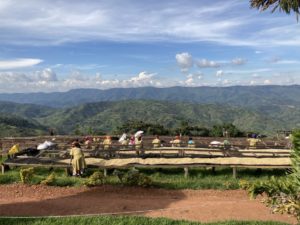
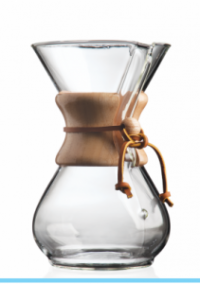
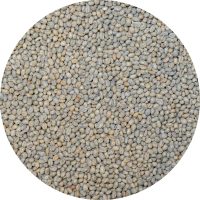
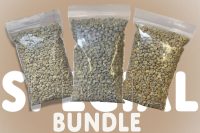
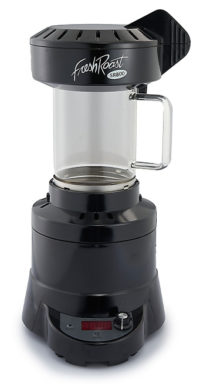

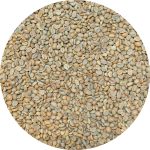

sandranbob (verified owner) –
Roasted this to a light/medium (14% loss) on a SR800. After more than 2 wks of resting, this coffee was sweet and delicious using a French press, also good with Aeropress.